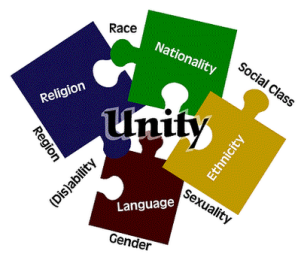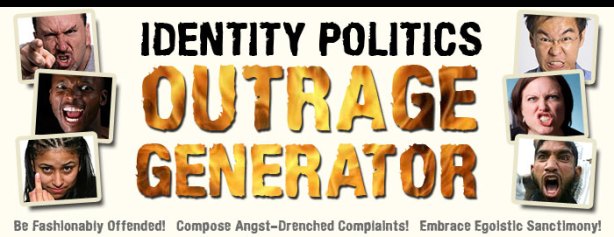Identity is not the cause of political polarization. It’s emotions. Some people are terrified and disgusted by the demographic and economic trends in this country. They retreat to racial and other tribal identities to feel more secure.
But pundits like Fareed Zakaria want to blame identity for the political polarization that dominates the U.S. and Europe. They have it all wrong. In a recent article, Zakaria stated that
Partisanship today is more about identity. Scholars Ronald Inglehart and Pippa Norris have argued that, in the past few decades, people began to define themselves politically less by traditional economic issues than by identity — gender, race, ethnicity, sexual orientation. I would add to this mix social class, something rarely spoken of in the United States but a powerful determinant of how we see ourselves. Last year’s election had a lot to do with social class, with non-college-educated rural voters reacting against a professional, urban elite
It’s always about group membership, however. This is true whether the group is  neighborhood, gender, racial, religious, or ideological. The question is who’s included and how important is that identity to your feelings of self worth and security.
neighborhood, gender, racial, religious, or ideological. The question is who’s included and how important is that identity to your feelings of self worth and security.
We like to believe that people are driven by reason and deliberation. Most research suggests that this is not true. We have a natural talent, if not a need, to socialize. But our socializing skills and nature have a hard time stretching beyond about 100-150 people. This is the number of people that most hunting and gathering people lived with during the majority of our stay on this earth. This is also about the limit of FB “friends” that we can justly call friends. Though even this is probably stretching it. The creation of state society came with many compromises. We tend to think that the biggest compromise was the limit on individual freedom. We say that we gave up our individual rights in order to secure personal security and progress. But we also lost our our ability to live with and navigate our interactions with people that we knew well and trusted.
Today, everyone, except for some remaining hunting and gathering societies, live in enormous societies with multiple millions of other people. How do we connect to and make sense of all those other people? What do we know about them? How do we trust and communicate with them? The simple answer is that we can’t. It is for this reason that Benedict Anderson once called our efforts to form a national identity as something we imagine.
We think we belong to a “nation” with millions of others. But this is a fiction we believe and only very tenuously. States, nevertheless, see a need to promote national identities as a way of bolstering obedience. The problem is, as we have seen in the Middle East and America, that not everyone believes they belong to what others see as their fictional “nation.”
Right after 9/11, most people in these states believed they belonged to an American Nation. Everyone felt they were attacked by the terrorists…white, black, Asian, Latino, gay, Muslims, Buddhists, etc. They believed, rightly, that everyone shared a common fate. Not more than 10 months after 9/11, we again returned to a country of hyphenated Americans. Why? Because segregation, discrimination, police brutality, and much else, continued to define how they lived. It reminded people that not everyone shared in a common ‘American’ fate or identity.
Thus, it is not that some people glorify separate identities out of thin air. People are drawn to identity politics when they feel like their lives are not shared with others, when they do not share in one common national fate. It is the reality of living very different lives that creates identity. It forces people to try a self-identification with smaller groups, groups that they believe are more likely to secure their self worth and security.
